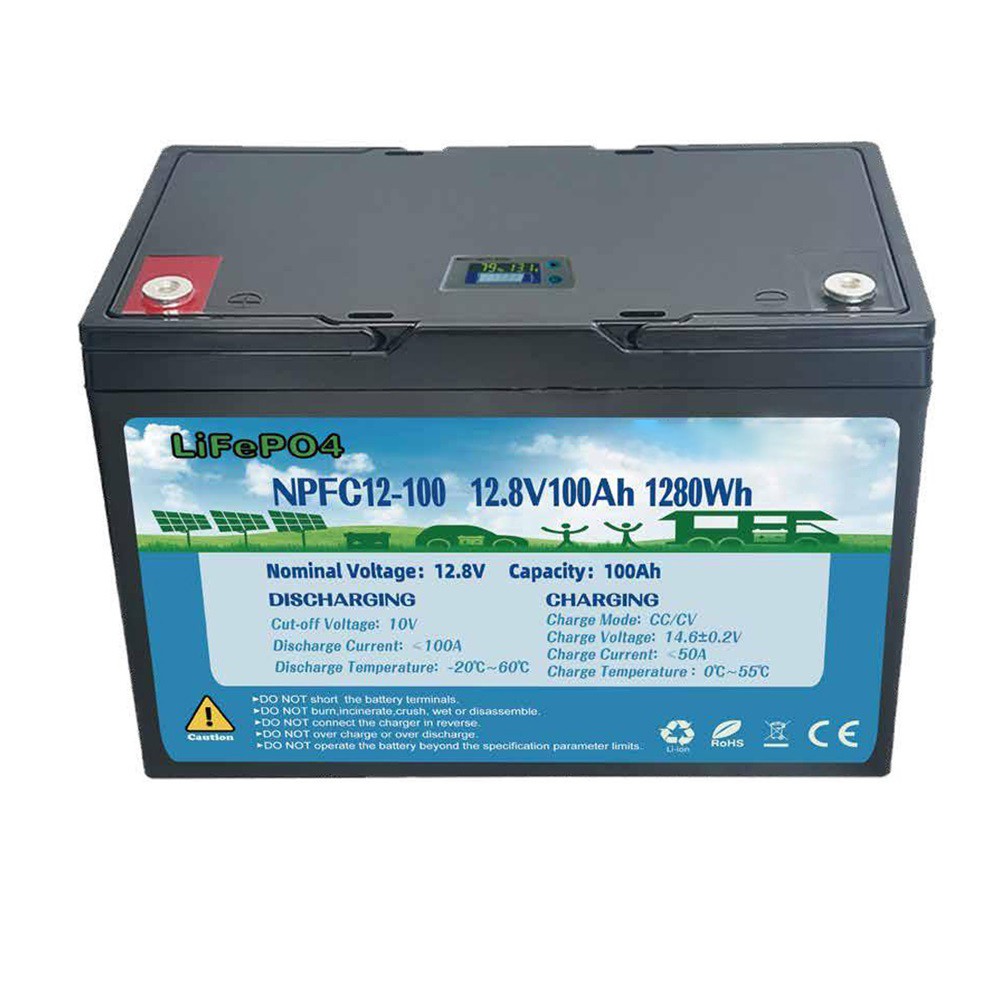
When selecting the right battery for your needs, it's essential to decide between 6V and 12V options. Whether you're using the battery for a golf cart, recreational vehicle, or solar power system, understanding the differences between these two voltages is key. This guide will break down the unique characteristics of each type, helping you determine which is best suited to your specific requirements.
A 6V battery is designed to provide a nominal output of six volts. It is often chosen for applications with lower energy needs.
Key Characteristics of 6V Batteries:
- Chemical Makeup: 6V batteries are typically lead-acid, containing lead dioxide (PbO2) as the positive electrode and sponge lead (Pb) as the negative electrode, both submerged in an electrolyte made of sulfuric acid (H2SO4).
- Capacity: Available in various amp-hour ratings, these batteries show how long they can provide power before needing a recharge.
- Size: Smaller and lighter than 12V batteries, 6V models are easier to handle and install.
- Cost: Generally more affordable, making them a budget-friendly option for many consumers.
Common Uses for 6V Batteries:
- Golf Carts: Often used in series to provide higher voltage.
- Solar Power Systems: Used for smaller solar energy storage setups.
- Toys and Equipment: Commonly used in certain toys or smaller devices.
In contrast, a 12V battery offers a nominal voltage of twelve volts, providing higher power output and greater versatility across a range of applications.
Key Characteristics of 12V Batteries:
- Chemical Makeup: Like 6V batteries, many 12V models are lead-acid types, but there are also other options, such as lithium-ion, which provide better energy density and longer lifespans.
- Higher Capacity: Typically offering larger amp-hour ratings than 6V batteries, these batteries provide longer usage times.
- Versatility: Ideal for a wide range of applications, from automotive to marine and home energy storage.
- Availability: More widely available, making replacement or upgrades easier.
Common Uses for 12V Batteries:
- Cars: Standard for most automotive batteries, powering engines and electrical systems.
- Recreational Vehicles (RVs): Powers appliances, lights, and other systems in RVs.
- Solar Power Systems: A preferred choice for larger setups that require substantial energy storage.
When deciding between 6V and 12V, several performance factors should be considered:
Voltage Output:
- 6V Batteries: Provide lower voltage but can be connected in series to achieve higher voltages.
- 12V Batteries: Offer a higher voltage, suitable for most standard applications.
Capacity and Amp-Hour Ratings:
- 6V: Typically ranges from 100Ah to 220Ah.
- 12V: Generally offers a range from 50Ah to over 300Ah, depending on the battery design and use.
Size and Weight:
- 6V: Usually more compact and lighter, with a typical size of around 10 inches in length and weight of 60 lbs.
- 12V: Larger and heavier, around 12 inches in length and weighing 70 lbs or more.
Cost:
- 6V: Typically ranges from $150 to $250.
- 12V: Priced higher, typically from $200 to $400.
Charging Complexity:
- 6V: Requires more effort to charge, especially when arranged in series.
- 12V: Easier to manage with simpler, single-unit charging.
Efficiency is influenced by the application:
- 6V Batteries: More efficient for low-power uses.
- 12V Batteries: Perform better for high-demand applications requiring greater energy output.
Factors Affecting Efficiency:
- Load Requirements: The power demand determines which battery is more efficient.
- Charging Cycles: The frequency of charging impacts efficiency and longevity.
Both types of batteries have distinct cost factors:
- Upfront Cost: 6V batteries are typically less expensive initially.
- Long-term Cost: Consider the lifespan and frequency of replacement when calculating total ownership costs.
Total Cost of Ownership Includes:
- Initial price
- Ongoing maintenance
- Replacement frequency
- Energy efficiency over time
Battery lifespan and upkeep can impact your decision:
- 6V Batteries: Typically last 3 to 5 years with proper care.
- 12V Batteries: Have a longer lifespan of 4 to 7 years or more, depending on conditions.
Maintenance:
- Both battery types need minimal maintenance but include:
- Regular charging cycles
- Cleaning terminals
- Monitoring fluid levels for lead-acid batteries
Both 6V and 12V batteries have environmental impacts to consider:
- Recycling: Both can be recycled, though disposal methods may vary by region.
- Energy Efficiency: Production and usage efficiency can differ based on battery chemistry and manufacturing processes.
Here are some typical scenarios where these battery types are used:
- Casual Golf Cart User: A 6V battery setup might be sufficient for occasional use, providing a cost-effective and reliable solution.
- Full-Time RV Traveler: For those who use their RVs consistently, a 12V battery is more suitable, offering the capacity to power appliances like refrigerators and air conditioning.
By considering these factors, you can make an informed decision on whether a 6V or 12V battery best fits your needs.
Next:LG Energy to supply 21700 battery for Tesla New Model Y
Previous:What Are The Best Batteries For Cold Weather Fishing?
Contact Person: Miss. Elsa Liu
| WhatsApp : | +8617763274209 |
|---|---|
| Skype : | +8617763274209 |
| WeChat : | 17763274209 |
| Email : | Elsa@lifepo4-battery.com |